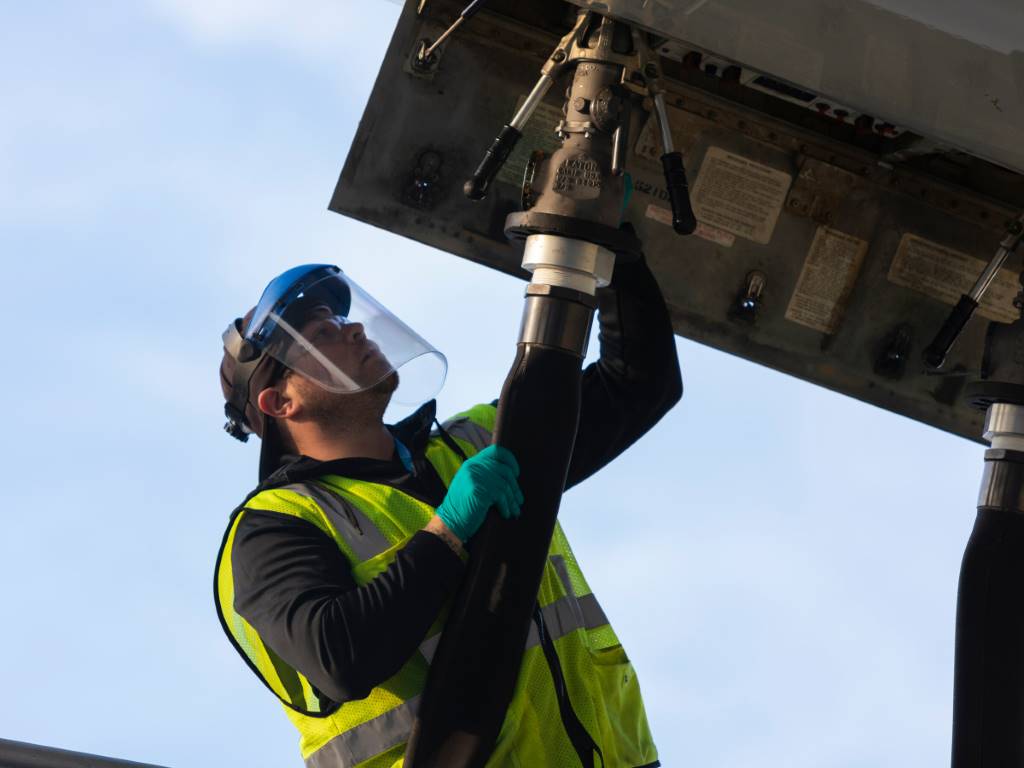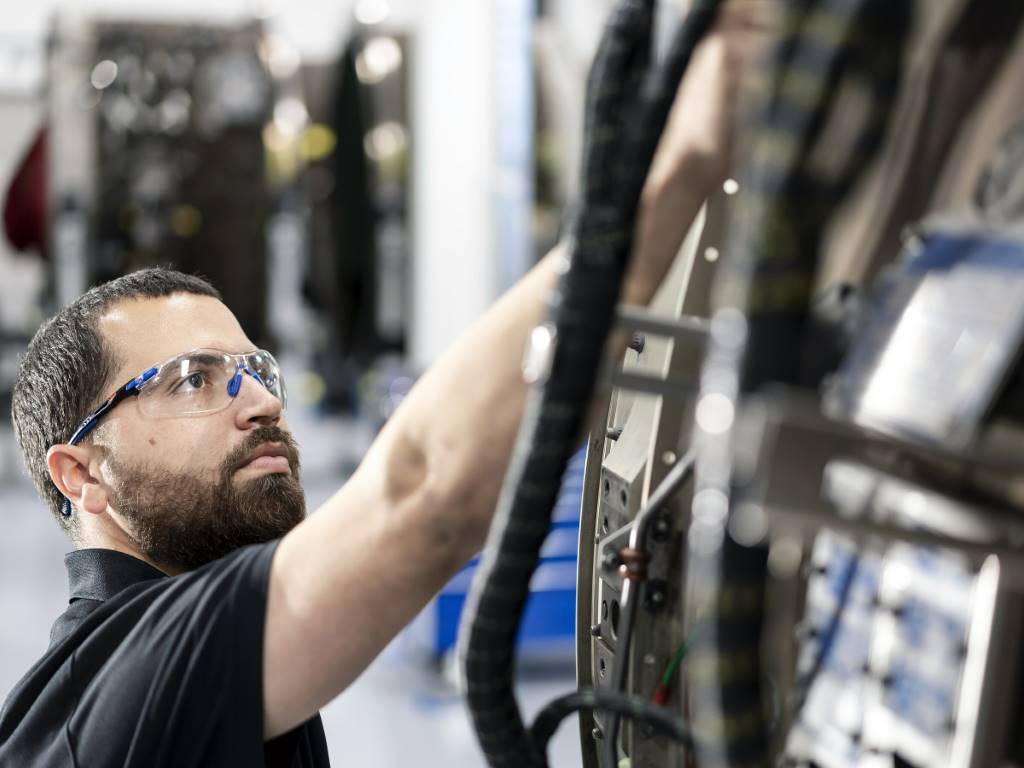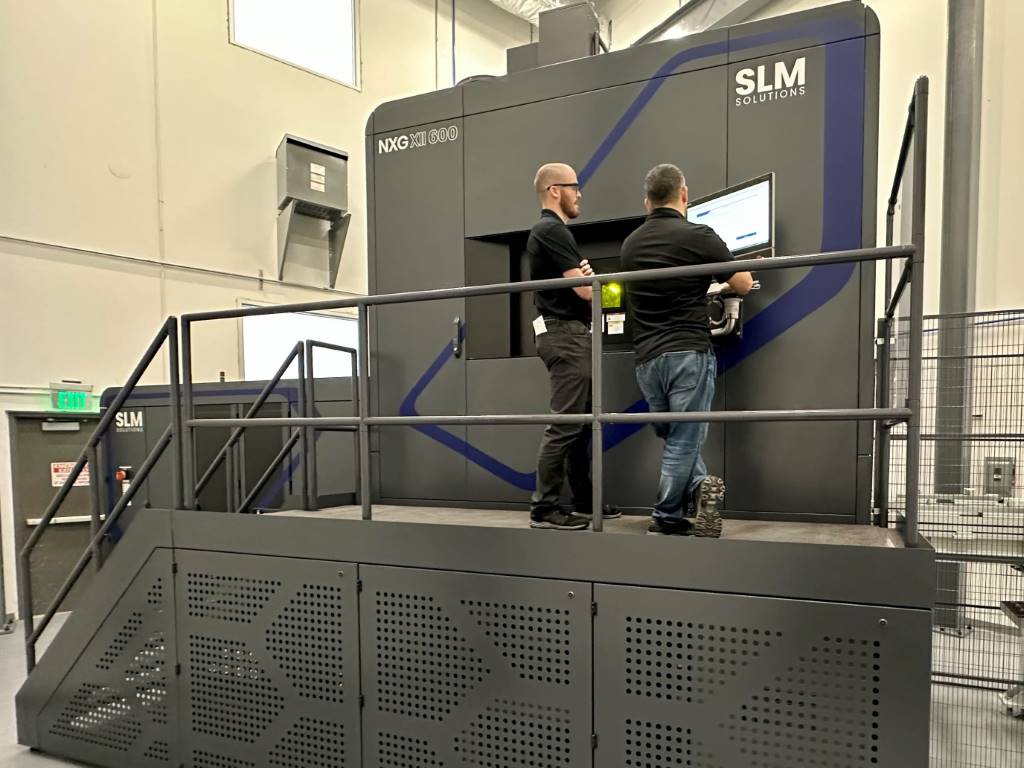As easy as 1-2-3!

Reaching new heights in component quality, maintenance and waste reduction, lubricant expert, Rhenus Lub explains how the triple effect of coolants can help ensure better component quality and simultaneously reduces tooling costs.
Precision and high tech, stability and weight reduction: the demands placed on components for the aviation industry are extremely high. They are accompanied by high performance requirements in the production of parts – for materials, such as aluminium, titanium and composites, as well as for machines and tools in machining processes. It is particularly important that the manufacturing process runs smoothly.
Lubricant expert, Rhenus Lub ensures better component quality and simultaneously reduces tool costs with its coolants specially developed and approved for the machining of aviation components.

Manufacturers of aircraft components are increasingly focusing on innovative lightweight materials, such as carbon-fibre reinforced polymer, aluminium and titanium – with the clear aim of building more efficient, kerosene-saving aircraft. Besides process safety and the precise timing of processes, component quality is a top priority in manufacturing. For example, if too much heat is produced during the machining process, microcracks, staining or residual porosity can appear on the machined components and specified manufacturing tolerances cannot be complied with. This results in excessive waste and – just like machines tools that wear too quickly – a key cost driver. If, due to faulty or missing components, aircraft construction grinds to a complete halt, all those involved in the manufacturing and supply chain will incur substantial costs from that point on.
On the one hand, precise knowledge of the manufacturing process and the resulting component properties is indispensable in the manufacturing of safety-critical aircraft components to ensure the best results in terms of quality and cost. On the other hand, the key to optimising the machining process also lies in the use of special coolants.
The proper use of coolants
Special coolants are used to achieve demonstrably fewer deviations and increased dimensional stability in machining processes. They contribute towards significantly improving the surface qualities, reduce the amount of reworking and increase the component quality. There is an additional, decisive advantage for manufacturers on the machine tool side. The use of special coolants results in significantly improved tool life, which reduces expenses for tools. This is a particularly decisive cost factor, especially with regards to high-strength materials machined in the aviation industry such as titanium or nickel-based alloys. Machining operations often entail extremely high tool costs.

“It is quite common for lubricants to be used in all traditional machining operations in the aviation industry,” explains Daniele Kleinmann, director of product management for coolants at Rhenus Lub. “However, selecting the right coolant is a decisive factor. Only then can manufacturers achieve maximum production reliability and improved quality with more productive times.”
As a leading lubricant manufacturer, Rhenus Lub has more than 20 years of industry expertise in the aviation industry. This experience enables it to develop suitable products for the wide range of operations and materials in this challenging industry and offer customers reliable advice.
Jörg Kummerow, head of coolant sales for Southern Germany and aviation industry specialist at Rhenus Lub, illustrates how important this is using the manufacturing process of a turbine as an example: “Nickel-based alloy turbine blades (e.g. Inconel 718), titanium ventilator discs and Waspaloy motor housings are all machined differently. It is important to consider all factors in order to optimise each machining process with the right coolant. Expertise is our key to success. We can only make the right selection if we know everything about the manufacturing process and the properties of materials and components.”

For example, a coolant should have particularly effective lubricating properties for the machining of nickel-based alloys, such as Inconel or Waspaloy. Titanium machining calls for a high-performance combination of cooling and lubrication – rhenus TU 560 is particularly recommended for this.
This is precisely what the experts at Rhenus Lub determine by intensively coordinating the machine tool, tools and coolant so that the customer ultimately benefits in terms of substance and sustainability.
Requirements and approvals
For the use of coolants in the manufacturing of some components, aircraft manufacturers place clearly defined requirements on high-performance lubricants. These include: a long service life to achieve the best possible economic results; cost-efficient flow properties that ensure efficient use of the coolant; good washing and rinsing characteristics that improve the cleanliness of components and machines.
A coolant can often only be used once it has what is known as an aviation approval.
“Our coolants are rigorously tested in combination with the materials for approval to ensure that they do not cause any damage to components that would result in waste,” explains Kummerow.
The aviation approval procedure assures suppliers and manufacturers that the coolants used do not negatively impact the processed materials.
“And we are constantly upgrading our approvals,” adds Kleinmann.
Environmental protection
The use of coolants has also received a positive response in terms of safety and protection, with particular regard to composite machining. It normally takes place in a dry state, which has significant disadvantages including short tool life, inadequate component quality and the formation of fine dust which is harmful to health. Rhenus Lub also offers exemplary solutions for composite machining: its special coolants rhenus XT 46 FC and rhenus XY 190 FC for the wet machining of carbon and other combined lightweight materials.
Any fine dust released during machining is automatically collected and flushed away by the coolant. This avoids the need for additional extraction and filter systems that would need to be installed for dry machining – cost-intensive equipment that is, however, necessary and mandatory in order to ensure adequate protection against fibre dust.
Thanks to their good skin compatibility, the absence of SVHC substances and GHS pictograms, and their classification in the water hazard class (WGK) 1, many Rhenus Lub coolants also contribute to environmental protection and occupational safety and thus to broader acceptance in the aviation industry. “Furthermore, coolants that do not contain any boric acid or formaldehyde are popular in aviation. These substances can also be harmful to health,” adds Kummerow.
From use during machining of stable lightweight materials and improvement for milling with micrometre precision to easier handling during final assembly work, high-performance lubricants from Rhenus Lub provide support throughout the production process of an aircraft. Coolants from Rhenus Lub therefore play an important role in the quality assurance of aircraft components and help manufacturers and suppliers to achieve cost savings, thereby making them more competitive.













